Suing someone after being hurt in an automobile accident for personal injury is complicated enough. But successfully pursuing one of these lawsuits against the government is even more difficult. Victims can sue their state and local governments as long as they meet certain requirements. Even then, there are rules that must be followed or you lose your ability to collect.
Cooper Schall & Levy is experienced with lawsuits against state and local governments in Pennsylvania. If you have been injured, we want to hear from you.
Can I Sue State and Local Governments for Personal Injury?
In short, yes. There are numerous governmental agencies in Pennsylvania that could be the target of an automobile or personal injury lawsuit. These include, but are not limited to:
- Police departments
- School boards
- SEPTA and other public transportation agencies
- Fire departments
- Housing authorities
- City and county governments
- State departments and agencies
Potential victims include those of automobile accidents, slips and falls, unsafe road conditions and unsafe buses and trains.
But government units in Pennsylvania enjoy more protection than do ordinary private defendants. Before a victim can sue, he or she has to first meet certain qualifications. Those who do must follow procedural rules that are unique to state and local governments.
Governments are generally shielded from lawsuits because of two related concepts: sovereign immunity (for state governmental units) and governmental immunity (for local governmental units).
What Is Sovereign Immunity?
States are granted a certain amount of protection from liability, known as sovereign immunity, by way of the 11th Amendment to the United States Constitution. Pennsylvania has also passed the Sovereign Immunity Act, which in most cases bars lawsuits against the state.
However, the government is allowed to waive its immunity, and it has done so in certain cases. An injured party may be able to sue if he or she (1) would have normally been able to recover damages had there been no governmental unit involved, and (2) he or she fits into one of the following nine sovereign immunity exceptions:
- Vehicle liability. This is for cases involving the operation of any motor vehicle in the possession or control of the state.
- Medical-professional liability. This covers acts of healthcare employees at state medical facilities or institutions, or by a state employee who is a doctor, dentist, nurse, or related health care personnel.
- Care, custody, or control of personal property in the possession of the state government.
- Commonwealth real estate, highways and sidewalks. Lawsuits invoking this exception relate to dangerous conditions of real property owned by the state, plus highways and sidewalks.
- Potholes and other dangerous conditions. This involves hazardous conditions created by potholes and sinkholes on state highways, but is only for personal injuries.
- Care, custody, or control of animals. Injuries from police dogs, horses, and other animals under the control of government fall under this category.
- Liquor store sales. This exception applies to inappropriate liquor store sales to minors, visibly intoxicated persons, and others.
- National Guard activities. Covers acts of a member of the Pennsylvania military forces.
- Toxoids and vaccines. Relates to vaccines not manufactured in the state and for which the state under certain specific circumstances must take responsibility.
Many of these exceptions have detailed additional criteria, so consult an experienced Pennsylvania attorney to determine if your case qualifies.
What Other Sovereign Immunity Rules Apply?
Anyone wishing to sue a state governmental unit must provide written notice within six months of injury. The notice contains the identity and address of the victim; the location, date, and time of the injury; and the name and address of the potential plaintiff’s doctor. Failure to follow this notice requirement will bar recovery.
Are There Limits to Damages In Cases Involving the State?
Pennsylvania’s Sovereign Immunity Act limits damages against the state to $250,000 for any single-plaintiff and $1,000,000 for any single incident. There are only certain damages allowed:
- Lost earnings and earning capacity
- Pain and suffering
- Medical and dental expenses
- Loss of consortium
- Property losses (except those involving potholes and sinkholes on state highways)
What Is Governmental Immunity?
Governmental immunity refers to limitations enacted by the state of Pennsylvania that protect local governmental units such as cities and counties. The Political Subdivision Tort Claims Act bars suits against local municipalities, with exceptions that are similar (but not identical) to those under the Sovereign Immunity Act:
- Operation of a motor vehicle
- Care, custody or control of personal property of others in the possession or control of the local government
- Care, custody or control of real property in the possession of the local government
- Care, custody or control of trees, traffic controls and street lighting, which create a dangerous condition
- Dangerous conditions of utility service facilities
- Dangerous conditions of streets
- Dangerous conditions of sidewalks
- Care, custody or control of animals
The six-month notice requirement also applies. Finally, a local government official whose behavior constitutes a crime, actual fraud, actual malice or willful misconduct is not protected by governmental immunity.
Are There Limits to Damages in Cases Involving Local Governments?
Similar to provisions of the Sovereign Immunity Act, both the amount and types of damages recoverable against a local government are restricted. The Tort Claims Act limits recovery to $500,000 for either the plaintiff or for any single incident.
The same damages available under the Sovereign Immunity Act are allowable against local governments, along with recovery for loss of support. Pain and suffering damages are limited to (1) death or (2) “permanent loss of a bodily function, permanent disfigurement or permanent dismemberment where the medical and dental expenses are in excess of $1,500.”
Lastly, any recovery from the plaintiff’s insurance must be deducted from allowable damages against the local government.
Act Now To Preserve Your Rights
Cases against state and local governments are not only more complex, but they are governed by shorter statutes of limitation. The best way to preserve your legal rights after an injury involving the government is to take immediate action. Get started today by calling Cooper Schall & Levy.
Cooper Schall & Levy personal injury lawyers serve Philadelphia, Pennsylvania as well as neighboring counties such as Montgomery County and Delaware County and cover neighborhoods such as Norristown and Drexel Hill.


